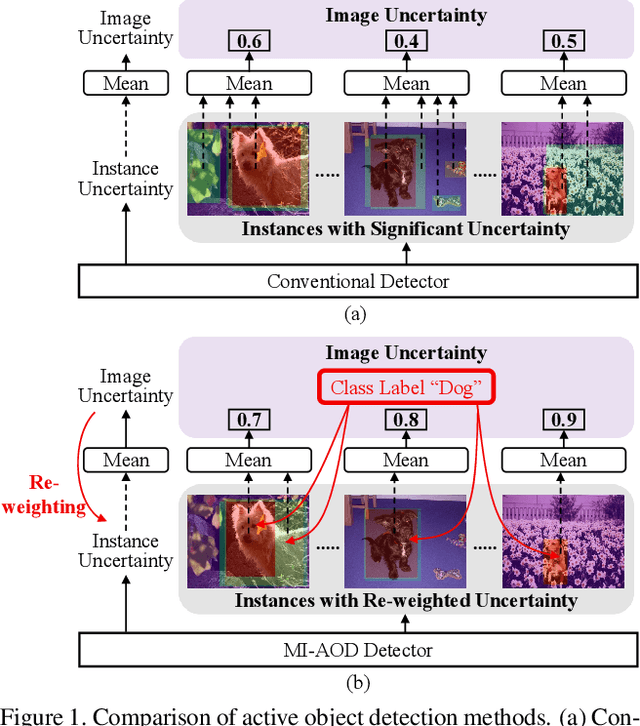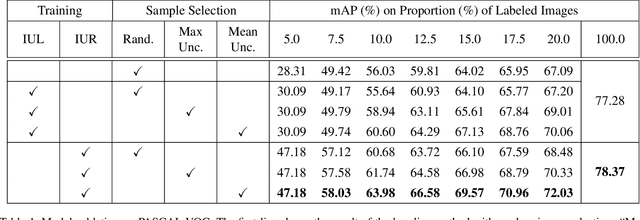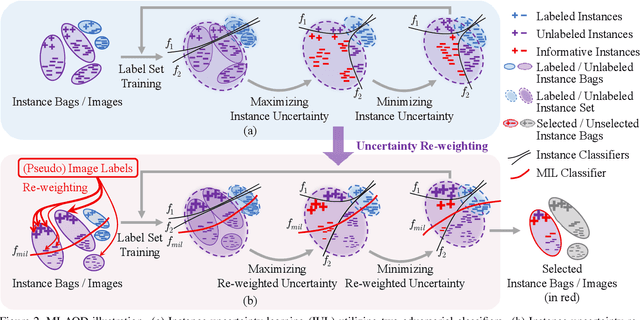Mengying Fu
University of Chinese Academy of Sciences, Beijing, China
Multiple instance active learning for object detection
Apr 06, 2021



Abstract:Despite the substantial progress of active learning for image recognition, there still lacks an instance-level active learning method specified for object detection. In this paper, we propose Multiple Instance Active Object Detection (MI-AOD), to select the most informative images for detector training by observing instance-level uncertainty. MI-AOD defines an instance uncertainty learning module, which leverages the discrepancy of two adversarial instance classifiers trained on the labeled set to predict instance uncertainty of the unlabeled set. MI-AOD treats unlabeled images as instance bags and feature anchors in images as instances, and estimates the image uncertainty by re-weighting instances in a multiple instance learning (MIL) fashion. Iterative instance uncertainty learning and re-weighting facilitate suppressing noisy instances, toward bridging the gap between instance uncertainty and image-level uncertainty. Experiments validate that MI-AOD sets a solid baseline for instance-level active learning. On commonly used object detection datasets, MI-AOD outperforms state-of-the-art methods with significant margins, particularly when the labeled sets are small. Code is available at https://github.com/yuantn/MI-AOD.
Learnable Expansion-and-Compression Network for Few-shot Class-Incremental Learning
Apr 06, 2021



Abstract:Few-shot class-incremental learning (FSCIL), which targets at continuously expanding model's representation capacity under few supervisions, is an important yet challenging problem. On the one hand, when fitting new tasks (novel classes), features trained on old tasks (old classes) could significantly drift, causing catastrophic forgetting. On the other hand, training the large amount of model parameters with few-shot novel-class examples leads to model over-fitting. In this paper, we propose a learnable expansion-and-compression network (LEC-Net), with the aim to simultaneously solve catastrophic forgetting and model over-fitting problems in a unified framework. By tentatively expanding network nodes, LEC-Net enlarges the representation capacity of features, alleviating feature drift of old network from the perspective of model regularization. By compressing the expanded network nodes, LEC-Net purses minimal increase of model parameters, alleviating over-fitting of the expanded network from a perspective of compact representation. Experiments on the CUB/CIFAR-100 datasets show that LEC-Net improves the baseline by 5~7% while outperforms the state-of-the-art by 5~6%. LEC-Net also demonstrates the potential to be a general incremental learning approach with dynamic model expansion capability.
 Add to Chrome
Add to Chrome Add to Firefox
Add to Firefox Add to Edge
Add to Edge